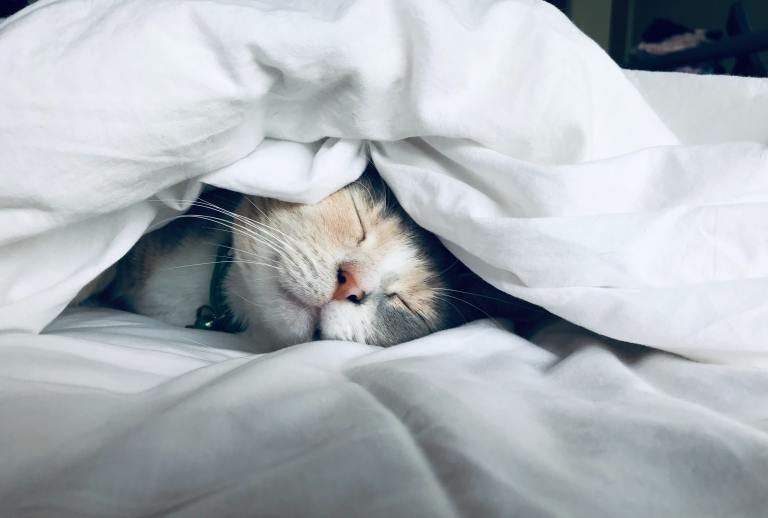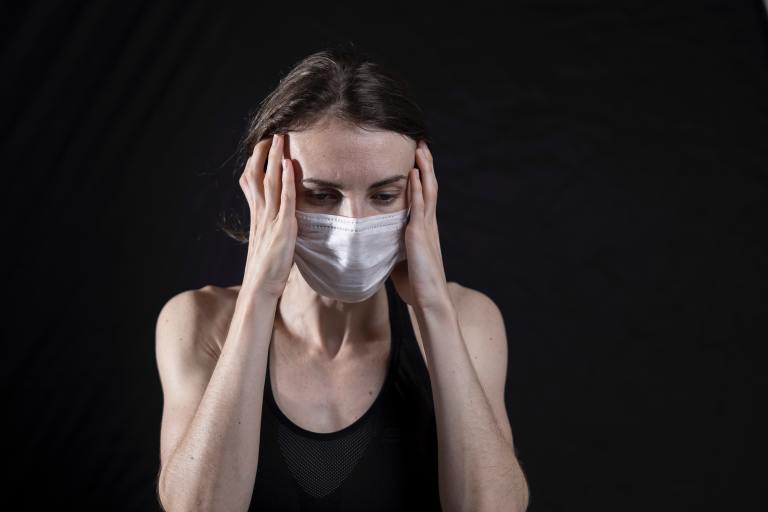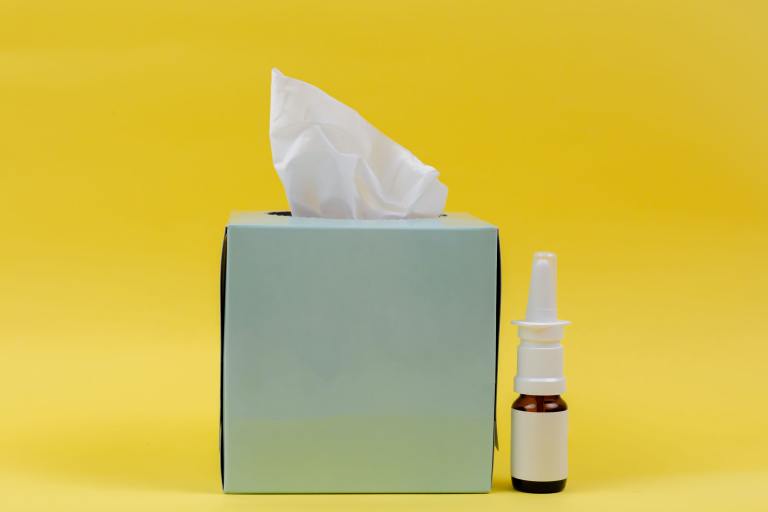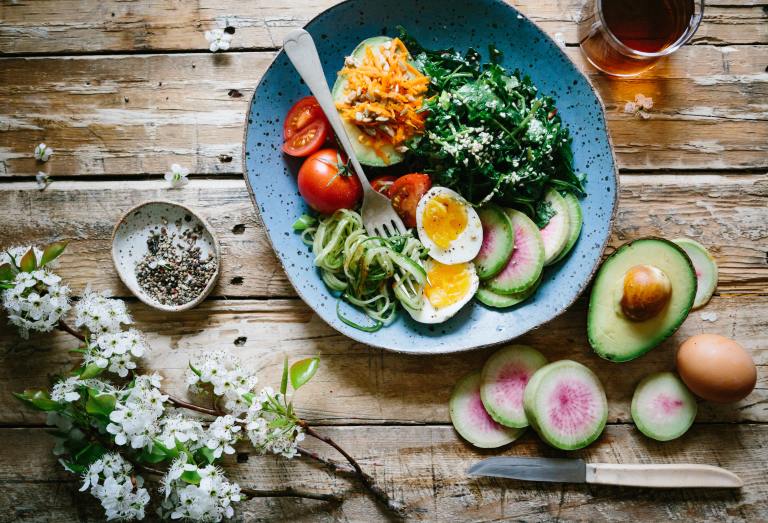Sleep hygiene (a term for ‘good sleep habits’) plays a key role in your overall sleep health. If you’re having difficulty sleeping or want to improve the quality of your sleep, try adopting these 10 healthy sleep habits. Talk to your doctor or visit a sleep center4 if you’ve been struggling with insomnia for over a month or if lack of sleep starts to interfere with your daytime activities.
1. Stick to a sleep schedule.
Start waking up and going to bed at the same time each day, giving yourself enough time to get 7 to 8 hours of rest. Try setting a daily alarm to hold yourself accountable. This may be difficult at first, but don’t worry—your body will adjust quicker if you stick to the schedule!
2. Relax before enjoying your slumber.
Pick a relaxing activity and make it part of your pre-sleep regimen. This activity should be relaxing, like doing a nighttime skincare routine, drinking a warm glass of milk, or listening to soothing music. Anything that can make going to bed more enjoyable should be part of this regimen. Fun fact: 78%5 of people are more excited to go to bed if they have fresh-smelling sheets.
3. Respect your bed.
Use your bed for bedtime activities only. It’s important to program your brain to view your bed as a place for rest. So think twice the next time you want to eat or watch TV in bed!
4. Don’t linger.
Avoid going to bed unless you’re feeling sleepy. If you go to bed and can’t fall asleep after 20 to 30 minutes, stop tossing and turning. Instead, get out of bed and do a relaxing activity, like reading a book or practicing meditation, until you’re feeling sleepy again.
5. Avoid using electronics.
We all love scrolling through Instagram or TikTok before bed, but studies have shown that the light from electronic devices can suppress melatonin and increase alertness6 , ultimately interfering with your sleep. It’s recommended to put electronic devices away at least half an hour before bedtime.
6. Avoid alcohol before bedtime.
While alcohol is a sedative and can make you sleepy, having it in your system can prevent you from getting the deep sleep and rapid eye movement (REM) sleep7 your body actually needs. Alcohol will keep you in the lighter stages of sleep, likely causing you to wake up easily throughout the night and leaving you tired and grumpy in the morning.
7. Ditch your afternoon or evening caffeine fix.
Having a cup of coffee every morning to prepare you for the day is perfectly fine. In fact, drinking a cup of joe each morning does actually have many health benefits. However, studies have shown that consuming caffeine 6 hours before bedtime8 has disruptive effects on sleep.
8. Exercise and eat healthy.
Physical activity, sleep, and a healthy diet are the 3 main pillars of health—they affect one another in countless ways. Focusing on improving each pillar is the key to a healthy lifestyle.
9. Avoid taking long naps.
Have you ever taken a nap and woke up surprised it was already dark out? Taking long naps during the day can interfere with falling asleep at night. Instead, try to keep naps under 30 minutes. Quick power naps9 throughout the day can actually boost energy, brighten up mood, heighten focus, and improve overall brain function.
10. Don’t eat a large meal before bed.
Eating a big meal before bed can cause indigestion or heartburn, making it difficult to fall asleep. It’s generally recommended to eat your last meal of the day 2 to 3 hours before going to bed. If you’re feeling hungry late at night, try opting for a light snack, such as a piece of fruit or some Greek yogurt.
Bonus: If your sleep schedule is all out of whack or you need some help adjusting to a new schedule, try taking a melatonin supplement, like Natural Sleep Aid.










